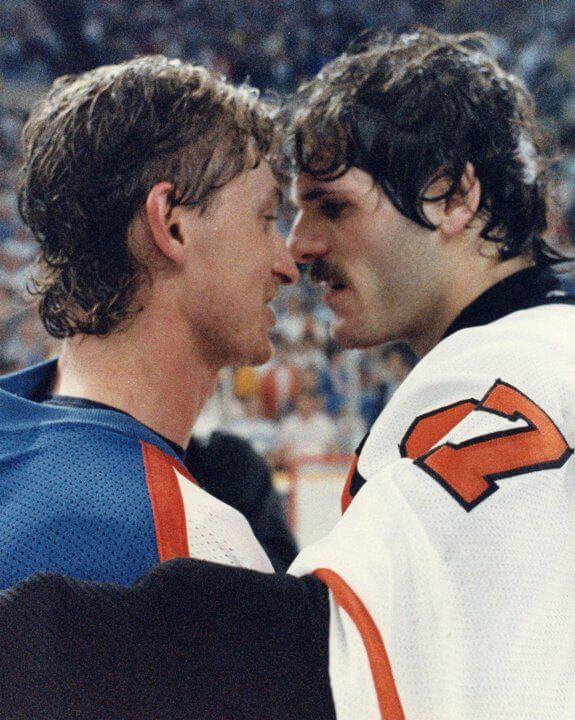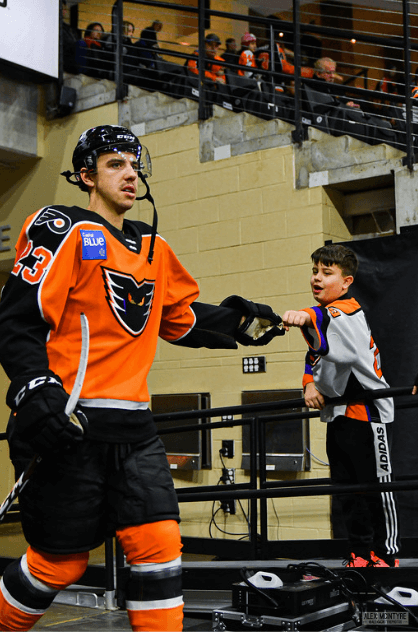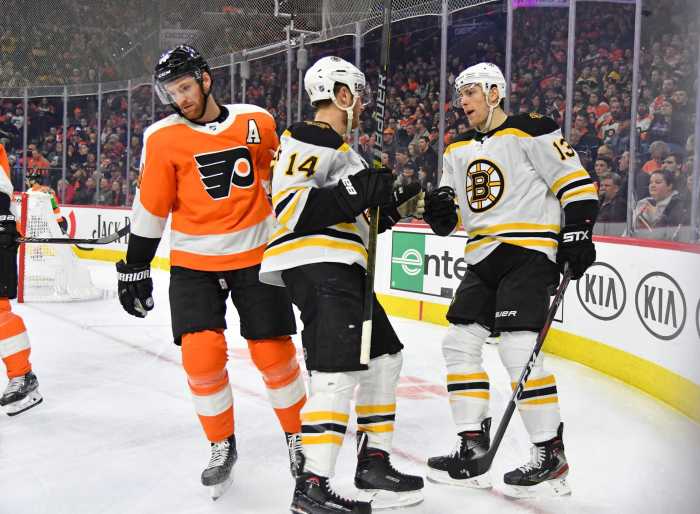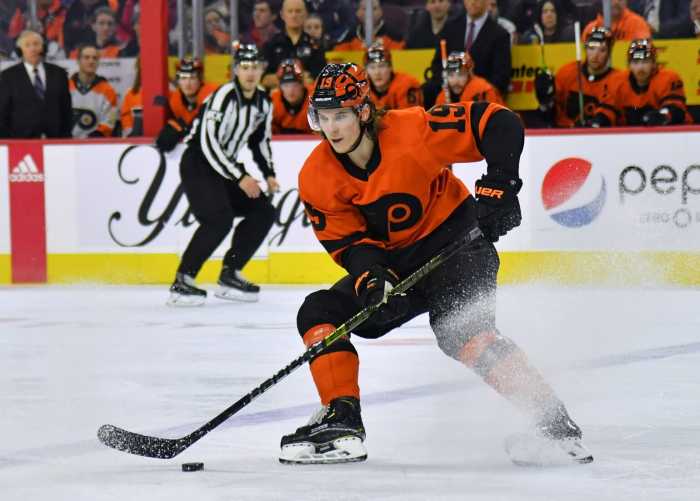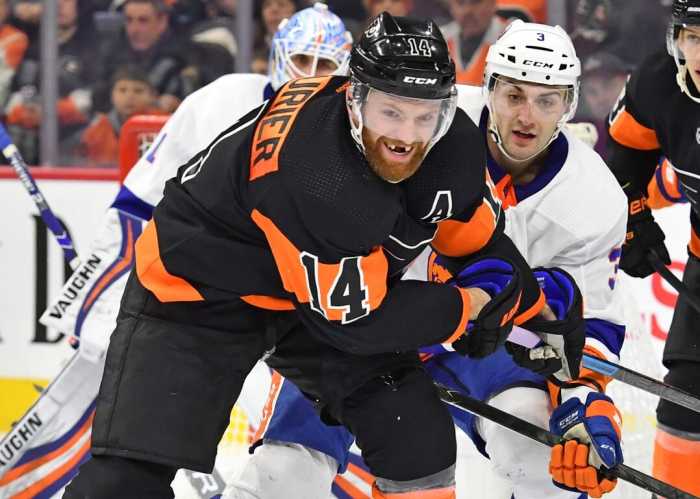As a continuation of PSN’s playoff series, we now move onto some notable game three’s in playoff history. This time, we’re going to take you back to an often forgotten about season. Game three of Stanley Cup Finals against the Oilers in 1987 was a huge bounce-back game for Philly, as they took down the Oilers 5-3. The Oilers took the first two games by a slim margin, so this win was huge for the Flyers to get back into the series.
Heading into the season, the Oilers were heavy Stanley Cup favorites. I mean, they had the Great One after all. On the flip side, the Flyers sat at +400 preseason odds. It wasn’t a total David vs. Goliath matchup since the Flyers won the Patrick Division with 100 points, but not many people believed in Philly to last more than five games. So, let’s see how it all panned out.
First Period
As mentioned above, the Flyers were already down 2-0 in this series. Coming into game three, the odds were entirely stacked against them. Mark Messier and Wayne Gretzky were in the opposition’s jerseys, and the Flyers quickly went down 1-0 in this game. Despite going on an early powerplay, Messier scored a short-handed goal four minutes into the game for his 11th of the playoffs.
Ron Hextall stood on his head for the rest of the period, as the Flyers were outplayed drastically. In fact, the Flyers did not get their first real shot on Fuhr until halfway through the first period.
However, the Oilers would sneak one more past Hextall as the period was winding down. Paul Coffey would find the back of the net to put Edmonton up 2-0 after one, putting a damper on the Flyers’ hopes.
Second Period
Ron Hextall was a unique goalie in many facets. Not only was he a stellar netminder, but he scored a few times, and he fought… a lot.
With this came many penalties, and he picked up an interference penalty early into the second. The Oilers’ top-ranked offense didn’t let this one slip by, as Glenn Anderson pulled off the “no-move” move for his 13th of the playoffs. With the Oilers up 3-0, many Flyers’ fans began to face reality.
Coach Mike Keenan called a timeout after, trying to rally his troops. And similar to when Peter Laviolette did this in 2010, the Flyers rallied around their coach’s words.
The momentum suddenly became Philly’s. Halfway through the period, the Oilers got caught with too many men on the ice. Murray Craven would make them pay as he got one past Grant Fuhr to get the Flyers on the board. Only about five minutes later, Esa Tikkanen would get called for slashing, putting the orange and black on the powerplay again. This time, Peter Zezel would score from behind the net, banking it off an Oiler. Suddenly, this was a 3-2 game heading into the final frame.
Third Period
In front of a sold-out Spectrum crowd, the Flyers find their energy. This game became all-Flyers in the third period, as they would score the last five goals of the game after going down 3-0 to start.
Scott Mellanby would absolutely rip one past Fuhr five minutes into the third period to make this a tie game. Mellanby would then do some damage, as he fed Brad McCrimmon back door from a sweet sauce pass to give the Flyers their first lead.
Flyers’ legend Brian Propp would later put the icing on the cake for Philly, as his 11th goal of the playoffs came as he potted an empty netter.
What Happens Next:
Oddly enough, Ron Hextall took home the Conn Smythe Trophy for playoffs MVP. This made him the third player in NHL history at the time, and third of five total, and the second Flyer (Reggie Leach, 1976) to do so as the MVP of the losing team. Hextall made 25 saves in this one, and 698 total playoff saves in 1987, more than 200 higher than the next goaltender on the list.
Unfortunately for the Flyers though, Hextall couldn’t play every position. The Oilers would bounce back to take a 3-1 series lead after winning game four, which was followed up with back-to-back wins by the Flyers to take this to seven games.
Despite taking an early lead in game seven, the Oilers high powered offense was too much, and they took the Stanley Cup Finals in seven games. As in Flyers’ fashion, they ran into another dynasty, preventing their hopes of hoisting the cup.
Mandatory Credit – ca.sports.yahoo.com

